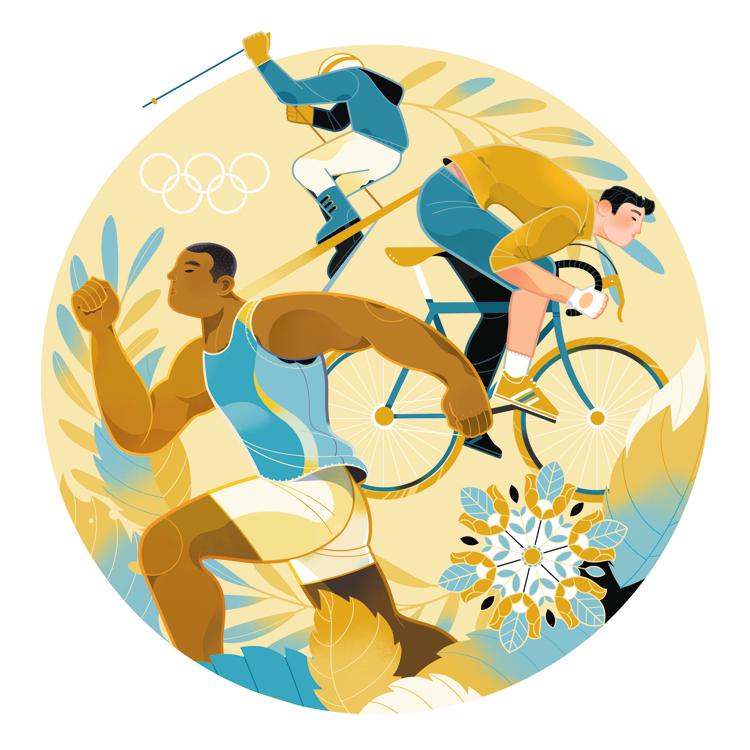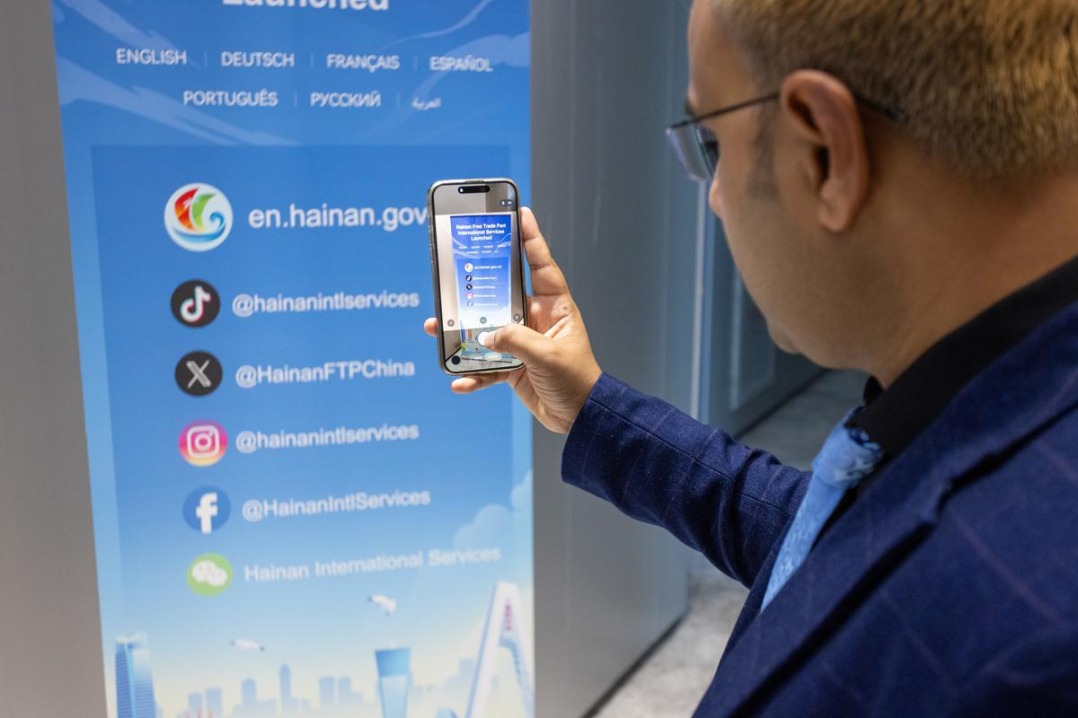Keeping the Olympic Spirit alive
By Luo Xiaoqi and Ji Yanjing | China Daily | Updated: 2022-11-26 09:16

The Olympic Games have become a modern sporting festival celebrated the world over. With 206 members, the Olympic family shows its youth and passion through the Games, inspiring generations of young people and boosting billions of people's enthusiasm.
Rational personalities
Chinese people totally agree with and are committed to promoting the Olympic Spirit, believing it educates and cultivates a civilized personality, as well as incentivizes a rational personality.
Emperor Theodosius I, a Roman emperor who converted to Christianity in 394 AD, banned the games, which he equated with paganism. With it the Olympic spirit disappeared for the next 1,500 years. During that time, the types of war changed from secular hegemony or conflicts of interest to religious crusades and jihad. That goes to show that there could be endless wars once the "irrational" aspects of human beings like belligerence are given the shape of an ideology.
By the end of the 19th century, irrational ideas such as belligerence, populism, racism and militarism were still popular despite the success of the first Industrial Revolution.
Against this backdrop, Pierre de Coubertin, a French educator and historian, delivered the Olympic Manifesto in 1892, with the goal of reviving the Olympic Games and the Olympic Spirit.
Now known as the "Father of modern Olympics", Coubertin firmly believed that sports can make the world a better place, as well as educate and influence people all over the world, helping them form rational personalities in pursuit of peace and excellence.
The first modern Olympic Games were held in Athens, Greece, on April 6, 1896. It created the basic template for the modern Olympics.
The Olympic Spirit can now be seen in physical education courses in schools and in the community sports culture.
Economic rationality
The Olympic Spirit is economic rationality because a community can be rational when the industry and supply chains match with the market and consumption chains.
Ancient Greece, a civilization, reached its peak of glory in the 8th century BC, being abundant in agriculture, animal husbandry, business and industry. The Olympics greatly strengthened value-based recognition, economic exchanges and trade expansion among different Greek cities.
The 130-year development of the modern Olympics shows that the rational Olympic economy can change the spiritual outlook of a country and the whole world, boost the host country's economic development and promote sports culture, especially stimulating enthusiasm of the younger generation for sports.
Goldman Sachs Group Research has released several reports after studying the Olympic economics model and concluded that in becoming truly global events, the Olympic Games promote the development of the sports industry, and have a great impact on the GDP growth of host countries and their neighbors.
Olympic Games can significantly boost the development of infrastructure and the service industry in the host countries. Also, the number of Olympic events has increased over time, so that technology can be applied to the sports industry. In addition, the growth of the "Olympic economy" that connects host countries has accelerated.
Today, sports and cultural industries boosted by the Olympics have become economic pillars in North America, Western Europe and Japan. The annual output from sports and cultural industries in the United States exceeds that from the petrochemical, automobile and shipping sectors.
Similarly, the growth rate of the total output value of China's sports and cultural industries, inspired by the spirit of the Olympic Games, has been more than 10 percent for many years, higher than its GDP growth. Also, the government released a national fitness plan for the 14th Five-Year Plan period (2021-25), stating that the market value of the Chinese sports industry will exceed 5 trillion yuan (about $70 million) when the five-year plan wraps up.
Science and technology
Nature magazine reported in 2008 that the Antikythera Mechanism, which was discovered in Greece in 1901, is believed to be a hand-powered orrery — a moving model of the motions of the Earth, moon and sun — that was used to set the date of ancient Games. Researchers deciphered inscriptions buried inside the device's fragmented brass pieces that indicated its Olympic role.
This archaeological research reveals the original scientific connotation of the Olympic Spirit. In the past 130 years, science and technology have become the primary driving forces for the development of the Olympic Games thanks to several industrial revolutions. The Olympic Games have greatly promoted the technological development of kinesiology, which is the study of movement, sports apparel, sports equipment and sports medicine.
The Beijing 2022 Winter Olympic Games were underpinned by technological advances, with more than 200 latest technologies being employed. For example, the Games were carbon-neutral thanks to the environmentally-friendly technology such as self-driving vehicles. Also, information technology such as 5G and 8K video were used on a large scale and other advanced technologies helped the Games to realize smart venue management.
The "information revolution" made the communication and information services of the Olympic Games "faster, higher and more perfect". The number of cumulative online clicks exceeded 10 billion times during the 16 days of the competition, with the highest 1.2 million time clicks per minute. During peak moments, nearly 1 million people were watching the games simultaneously on their mobile phones. The network also ensured that audiences in every competition venue were able to send more than one million emails.
People believe the next Olympic Games will introduce even more powerful technologies.
Future Olympics
In March 2021, the International Olympic Committee approved a new strategic road map, Olympic Agenda 2020+5. It is based on key trends including the need for greater solidarity within and among societies, the growth in digitalization, the urgency of achieving sustainable development, the growing demand for credible institutions and organizations and the need to build resilience in finance and the economy.
The ancient Olympic Games were organized 293 times in ancient Greece and ancient Rome over a period of 1,170 years. In contrast, 43 cities in 23 countries have hosted the modern Olympics over a period of 130 years. With 206 members, the Olympic Games have become one of the most influential galas of human civilization.
The rules and vision of the Olympic Games can still address today's global political conflicts and the Olympic Spirit is reflected in building a community with a shared future for humankind.
History has proved that the rationale of the Olympics is to carry forward the Olympic Spirit, practice Olympism, spread the Olympic culture and create a better environment for rationality.
Let's hope Olympic rationality can be conveyed and shared in the world forever.
Lou Xiaoqi is executive director of the Capital Civilizational Development Foundation and editor-in-chief of Civilization magazine. Ji Yanjing is the chief researcher of the Capital Civilizational Development Foundation.
The views don't necessarily reflect those of China Daily.























